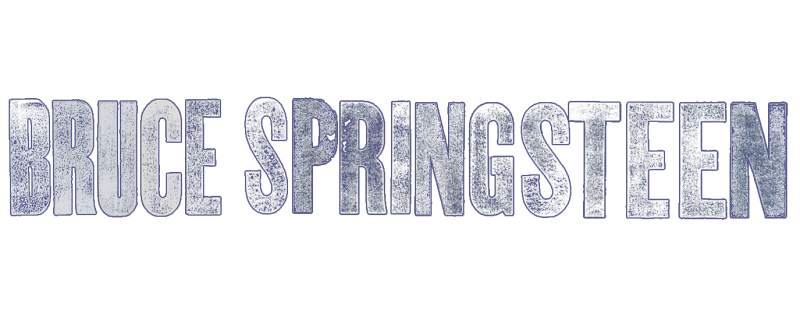Your Rating (Click a star below)
![]()
![]()
![]()
![]()
![]()
![]()
![]()
![]()
![]()
![]()
Total Rating
![]() (0 users)
(0 users)
0
0
3D Track Thumb![]()
Track Description
Available in:
"We Shall Overcome" is a protest song that became a key anthem of the African-American Civil Rights Movement (1955–1968). The title and structure of the song are derived from an early gospel song, "I'll Overcome Someday", by African-American composer Charles Albert Tindley. The song was published in 1947 as "We Will Overcome" in the People's Songs Bulletin (a publication of People's Songs, an organization of which Pete Seeger was the director and guiding spirit). It appeared in the bulletin as a contribution of and with an introduction by Zilphia Horton, then music director of the Highlander Folk School of Monteagle, Tennessee, an adult education school that trained union organizers. It was her favorite song and she taught to countless others, including Pete Seeger, who included it in his repertoire, as did many other activist singers, such as Frank Hamilton and Joe Glazer, who recorded it in 1950.
The song became associated with the Civil Rights movement from 1959, when Guy Carawan stepped in as song leader at Highlander, which was then focused on non-violent civil rights activism. It quickly became the movement's unofficial anthem. Seeger and other famous folksingers in the early 1960s, such as Joan Baez, sang the song at rallies, folk festivals, and concerts in the North and helped make it widely known. Since its rise to prominence, the song, and songs based on it, have been used in a variety of protests worldwide.
"I'll Overcome Someday" written by Rev. Charles Albert Tindley, of the African Methodist Episcopal Church, is the likely source of "We Shall Overcome," although the title, words, and tune differ substantially . Even had the two been more similar, Tindley's hymn was published in 1901, and in the public domain, according to US Copyright law. "We Shall Overcome" is an adaptation by Zilphia Horton, Guy Carawan, Frank Hamilton, and Pete Seeger, of a song that Zilphia Horton heard sung by union organizer Lucille Simmons in 1945. Horton's heirs, Carawan, Hamilton, and Seeger, share the artists' half of the rights, and TRO (The Richmond Organization, which includes Ludlow Music, Essex, Folkways Music, and Hollis Music), holds the publishers rights (to 50% of the royalty earnings). Pete Seeger explained that he took out a defensive copyright on advice of his publisher, TRO, to prevent someone else from doing so and "At that time we didn't know Lucille Simmons' name." Their royalties go to the "We Shall Overcome" Fund, administered by Highlander under the trusteeship of the "writers" (i.e., the holders of the writers' share of the copyright, who, strictly speaking, are the arrangers and adapters). Such funds are used to give small grants for cultural expression involving African Americans organizing in the U.S. South.
Bruce Springsteen and Little Steven performed this song Live in Oslo, Norway at the Memorial Concert after the Oslo-massacre 22nd of July 2011.

File Hashes
None Found...
Available in:
"We Shall Overcome" is a protest song that became a key anthem of the African-American Civil Rights Movement (1955–1968). The title and structure of the song are derived from an early gospel song, "I'll Overcome Someday", by African-American composer Charles Albert Tindley. The song was published in 1947 as "We Will Overcome" in the People's Songs Bulletin (a publication of People's Songs, an organization of which Pete Seeger was the director and guiding spirit). It appeared in the bulletin as a contribution of and with an introduction by Zilphia Horton, then music director of the Highlander Folk School of Monteagle, Tennessee, an adult education school that trained union organizers. It was her favorite song and she taught to countless others, including Pete Seeger, who included it in his repertoire, as did many other activist singers, such as Frank Hamilton and Joe Glazer, who recorded it in 1950.
The song became associated with the Civil Rights movement from 1959, when Guy Carawan stepped in as song leader at Highlander, which was then focused on non-violent civil rights activism. It quickly became the movement's unofficial anthem. Seeger and other famous folksingers in the early 1960s, such as Joan Baez, sang the song at rallies, folk festivals, and concerts in the North and helped make it widely known. Since its rise to prominence, the song, and songs based on it, have been used in a variety of protests worldwide.
"I'll Overcome Someday" written by Rev. Charles Albert Tindley, of the African Methodist Episcopal Church, is the likely source of "We Shall Overcome," although the title, words, and tune differ substantially . Even had the two been more similar, Tindley's hymn was published in 1901, and in the public domain, according to US Copyright law. "We Shall Overcome" is an adaptation by Zilphia Horton, Guy Carawan, Frank Hamilton, and Pete Seeger, of a song that Zilphia Horton heard sung by union organizer Lucille Simmons in 1945. Horton's heirs, Carawan, Hamilton, and Seeger, share the artists' half of the rights, and TRO (The Richmond Organization, which includes Ludlow Music, Essex, Folkways Music, and Hollis Music), holds the publishers rights (to 50% of the royalty earnings). Pete Seeger explained that he took out a defensive copyright on advice of his publisher, TRO, to prevent someone else from doing so and "At that time we didn't know Lucille Simmons' name." Their royalties go to the "We Shall Overcome" Fund, administered by Highlander under the trusteeship of the "writers" (i.e., the holders of the writers' share of the copyright, who, strictly speaking, are the arrangers and adapters). Such funds are used to give small grants for cultural expression involving African Americans organizing in the U.S. South.
Bruce Springsteen and Little Steven performed this song Live in Oslo, Norway at the Memorial Concert after the Oslo-massacre 22nd of July 2011.
File Hashes
None Found...



 50%
50%